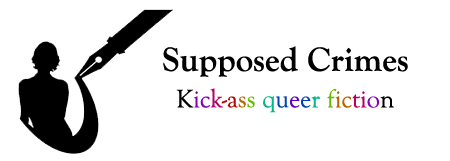The FIFA World Cup in Qatar has been marred with one controversy after another, and I’m not just talking about Messi not receiving a yellow card for his handball in the game against the Netherlands on Friday (it’s fine, I’m totally over it). Ever since FIFA announced that Qatar would be the host of this year’s tournament, a dark cloud has surrounded these games. From migrant deaths in the building of the infrastructure required to host the tournament, to the suppression of political dissidence, to the silencing of free speech, we have seen human rights be quashed time and time again.
It first began in 2010 when FIFA voted to give Qatar the 2022 World Cup - a decision that the then-president of FIFA has since openly said was a mistake. Looking beyond the corrupt and shady politics within FIFA that brought the Cup to Qatar, the decision to give Qatar the tournament has led to the deaths of well over 6,000 migrant workers. Qatar is a small country that simply lacked the required infrastructure - stadiums, highways, hotels - to accommodate something as massive as the World Cup. And so over the span of 12 years their workforce, composed almost entirely of migrant workers, shouldering the massive undertaking of World Cup preparations. During this time, the workers faced exploitation and death as a result of workplace accidents, heat exhaustion, car crashes in company cars, suicide, and other unexplained ways, according to NPR. Qatar, of course, denied these numbers and claims, and FIFA did nothing to punish Qatar for these human rights abuses.
The human rights violations did not stop once the World Cup kicked off. In Qatar, same-sex relationships are effectively criminalized, leading international players and fans to worry about their safety when traveling to the country. Yet despite Qatar’s promise that all fans would be welcomed to the games, the government has been very strict about censoring any symbols of LGBTQ+ pride both on the pitch and in the stands. When captains from several different European countries wanted to wear armbands that said “OneLove” on them and were adorned with a rainbow of colors, FIFA threatened them with yellow cards. Fans coming into the stadiums wearing any symbol of pride on them are being told they must remove the symbol or change.
The World Cup comes at a time when there is a global protest showing support for Iranian women and the Iranian people who are facing severe backlash, imprisonment, and death for opposing the Iranian government. The protests were sparked after the death of a young Iranian woman, Mahsa Amini, at the hands of Iranian police in September. Fans and political activists have been coming to the World Cup games bearing Mahsa’s name and other phrases of support for Iranian women on signs and donning the Iranian flag without the symbol of the regime in the center. These fans have been forced to hide their symbols of protest by World Cup security, and those who have refused have been removed from matches. The protests were not contained to the stands, though. In their first game against England, the Iranian team stood silently while their national anthem played, a seeming act of solidarity with the protesters. However, they sang their anthem for the rest of their matches in the tournament, most likely due to threats on them or their family by the Iranian government. The support for Iranian women on the field was not limited to the athletes though. During the November 28 Portugal v. Uruguay match, a protester wearing a shirt bearing support for the women of Iran on one side and the people of Ukraine on the other ran onto the pitch, waving a pride flag with the Italian word for “peace” printed across it. The protester was captured by security and taken into custody, but not before the world saw his message of protest and peace.
So what does the FIFA World Cup have to do with Supposed Crimes? It may not seem like much at first, but as an LGBTQ-focused publishing company, it’s important to bring attention to these issues. We must look at the intersectionality of human rights, where in the case of the World Cup there is an overlap of queer rights with migrant worker rights, women’s rights, and free speech. To ignore these issues is to tell those in power that how they are treating minorities is okay. What better way to grab their attention than through a tournament where, quite literally, the whole world is watching?

